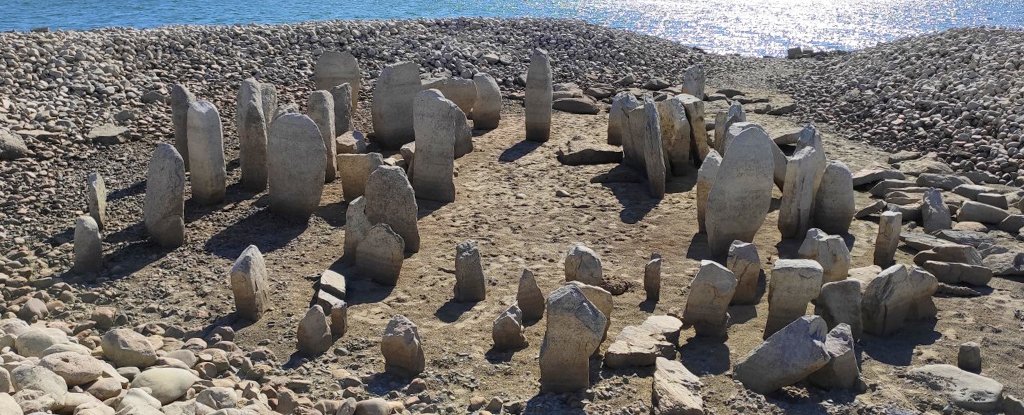Judi Lynn
Judi Lynn's JournalFive Hundred Days of Injustice: On the Imprisonment of Luiz Incio Lula da Silva
September 24, 2019 Celso Amorim

For normalcy to return to Brazil and for hope to be recovered, Lula’s freedom—along with annulment of the faulty process by which he was condemned—is essential.
By Celso Amorim
On April 7th last year, Brazil’s former president Luiz Inácio Lula da Silva was arrested in a São Paulo suburb and taken to Federal Police offices in the southern town of Curitiba. It was the culmination of a campaign, waged jointly by the mainstream media and part of the judiciary, that had begun two years earlier with a series of maneuvers that led to the impeachment of president Dilma Rousseff. The underlying objective, in both cases, was to roll back a progressive political project; one repeatedly endorsed by voters and that focused on bringing greater justice and equality to Brazilian society.
In May 2018, in what was widely understood as a reference to these events, Pope Francis spoke of a new form of “coup d ́État.” Later, as he addressed magistrates from all over the Americas, the Pope spoke of the danger that “lawfare” poses to democracy.
The trial leading to Lula’s imprisonment was acutely flawed from the beginning. The sentence given by Judge Sergio Moro states Lula was convicted for “undetermined acts” related to an infamous São Paulo beach condominium, without proof that Lula benefited from any sort of illicit exchange. In fact, all available evidence demonstrates that the apartment never belonged to Lula or anyone in his family.
“Given the credibility he has among the great majority of the population, only Lula can reestablish dialogue among all sectors of society, which is indispensable for Brazil to return to a path of peace and development.”
The power of the media campaign against Lula, and the naive worshipping of the fight against corruption by any means, sowed doubts in the minds of even the most skeptical individuals. But this began to change with the appointment of Judge Moro as minister of justice under current president Jair Bolsonaro—a move widely seen as a reward for Moro keeping Lula, the top-polling candidate, from participating in last year’s presidential election. This was followed by revelations in The Intercept proving what careful observers already knew: Lula was the object of political persecution, conducted by a biased judge and fanatical prosecutors obsessed with their personal project to amass power.
More:
https://orinocotribune.com/five-hundred-days-of-injustice-on-the-imprisonment-of-luiz-inacio-lula-da-silva?fbclid=IwAR2E1mgs7DbccfYqKkIxBUU3nz0Xq7LcPxGjT6OUOlOJ0oqj9EFh0PoT__o
Black hole seeds missing in cosmic garden
SEPTEMBER 25, 2019
by Elizabeth Landau, NASA

This artist's conception illustrates one of the most primitive supermassive black holes known (central black dot) at the core of a young, star-rich galaxy. Credit: NASA/JPL-Caltech
In the vast garden of the universe, the heaviest black holes grew from seeds. Nourished by the gas and dust they consumed, or by merging with other dense objects, these seeds grew in size and heft to form the centers of galaxies, such as our own Milky Way. But unlike in the realm of plants, the seeds of giant black holes must have been black holes, too. And no one has ever found these seeds—yet.
One idea is that supermassive black holes—the equivalent of hundreds of thousands to billions of Suns in mass—grew from a population of smaller black holes that has never been seen. This elusive group, the "intermediate-mass black holes," would weigh in somewhere between 100 and 100,000 Suns. Among the hundreds of black holes found so far, there have been plenty of relatively small ones, but none for sure in the intermediate mass-range "desert."
Scientists are working with powerful space telescopes from NASA, as well as other observatories, to track down far-flung objects that fit the description of these exotic entities. They have found dozens of possible candidates and are working toward confirming them as black holes. But even if they do, that opens up a whole new mystery: How did intermediate-mass black holes form?
"What is fascinating, and why people have spent so much time trying to find these intermediate-mass black holes, is because it sheds light on processes that happened in the early universe—what were the masses of relic black holes, or new formation mechanisms for black holes that we haven't thought of yet," said Fiona Harrison, professor of physics at Caltech in Pasadena, California, and principal investigator for NASA's NuSTAR mission, which is managed by the Jet Propulsion Laboratory.
More:
https://phys.org/news/2019-09-black-hole-seeds-cosmic-garden.html
Brazilian indigenous leaders denounce Bolsonaro before UN speech
Open letter decries ‘colonialist and ethnocidal policies’
President expected to attack left and foreign critics in New York
Tom Phillips Latin America correspondent
Mon 23 Sep 2019 10.38 EDT
Indigenous leaders in Brazil have denounced Jair Bolsonaro’s “colonialist and ethnocidal” policies as the far-right populist headed to New York to defend his treatment of the Amazon and its inhabitants.
Bolsonaro is set to make the opening speech at the UN general assembly on Tuesday morning after a wretched few weeks for Brazil’s international reputation in which reports of soaring deforestation and his response to the Amazon fires have cemented his reputation as South America’s “Captain Chainsaw”.
Brazil’s president is expected to use his UN debut to launch a Trumpian assault on the left and push back against foreign criticism of his treatment of Brazil’s environment and indigenous communities. He has recruited a rare pro-Bolsonaro indigenous voice, Ysani Kalapalo, to travel with him to New York in an effort to soften his notoriety as a rainforest destroyer.
But in a strongly worded open letter, 16 indigenous leaders from Brazil’s Xingu indigenous park spurned Bolsonaro’s “colonialist and ethnocidal” programme for their communities, which he has pledged to open for commercial exploitation.
More:
https://www.theguardian.com/world/2019/sep/23/jair-bolsonaro-un-brazilian-indigenous-leaders
Colombia's narcos put Elliott Abrams in checkmate, again
by Adriaan Alsema September 23, 2019
The United States’ Special Representative for Venezuela, Elliot Abrams, is in trouble again over a scandal similar to the Iran-Contra Affair, this time in Colombia.
While the evidence of the use of drug traffickers in the US-sponsored attempt to oust Venezuela’s disputed President Nicolas Maduro is only just surfacing, Abrams name is beginning to pop up a lot.
One incident in particular is drawing the attention; the failed attempt to force “humanitarian aid” from Brazil and Colombia into Venezuela on February 23, the day that Guaido’s 30-day term as self-declared interim president would come to an end.
The last-minute operation was led by the opposition leader, promoted and sponsored by the administration of US President Donald Trump, and coordinated with Colombia’s President Ivan Duque and drug trafficking organization Los Rastrojos.
. . .
The arrest of Los Rastrojos member “Nandito” in Venezuela earlier this month changed everything and put Abrams in the worst position since 1991 when he admitted he had lied to Congress about his subordinates’ cocaine trafficking, selling weapons to Iran to by weapons for death squads in central America.
On Nandito’s phone, Venezuelan prosecutors found photos of Guaido posing with four subordinates of regional Los Rastrojos ringleader “Necocli” in front of Zambrano’s car, indicating that also Abrams latest Latin American adventure involved narcos.
More:
https://colombiareports.com/colombia-and-the-rastrojos/
Intense Drought Exposes 4,000-Year-Old 'Stonehenge' in Spain

The Dolmen of Guadalperal. (Pleonr/Wikimedia Commons/CC BY 4.0)
MIKE MCRAE 23 SEP 2019
For decades, an ancient circle of stones has lain just out of sight beneath the waters of Spain's Valdecañas Reservoir, its tallest pillars occasionally breaking the surface like the fingers of a drowning swimmer.
Months of intense drought have now caused the reservoir's waters to fall - enough to reveal the structure in its entirety. Given the opportunity to revive research on the circle's archaeology, there's now debate over whether stones should be moved or left for rising waters to reclaim once more.
The 150 stones arranged in an oval are referred to as the Dolmen of Guadalperal. Built by Copper or Bronze Age locals on the banks of the Tagus River, it's thought to be at least 4,000 years old.
Lost to time, the ancient site was rediscovered in the 1920s and sparked interest from German anthropologist Hugo Obermaier, who analysed the architecture and its surrounding mounds of rocks.
The upright pillars – or orthostates – resemble the roughly hewn megaliths of Britain's notorious Stonehenge, not to mention a bunch of other similar constructs around Europe. And it could well have served similar purposes.
More:
https://www.sciencealert.com/intense-drought-in-europe-has-revealed-an-ancient-spanish-stonehenge
Brazilians blame Rio governor's shoot-to-kill policy for death of girl
Hundreds protest over favela killing of Ágatha Félix, eight, allegedly shot in back by police
Dom Phillips in Rio de Janeiro
Sun 22 Sep 2019 13.10 EDT
The photograph shows a smiling eight-year-old girl dressed as Wonder Woman, beaming through gap teeth and crossing her small clenched fists into an X. Shocked Brazilians shared the image of Ágatha Félix online after she was shot in the back in a Rio de Janeiro favela on Friday night by what residents said was a bullet from a police officer’s rifle. She later died in hospital.
She was the fifth young child to be killed in Rio favelas this year. Favela activists, politicians, the public defenders’ office and the president of Rio’s bar association blamed the shoot-to-kill policy of the Rio governor, Wilson Witzel. “He is responsible for the murder,” tweeted Guilherme Boulos, a leftist politician.
An ally of the far-right president, Jair Bolsonaro, Witzel was elected last year after promising a “slaughter” of drug gangsters. On Saturday, as hundreds demonstrated in anger in the Complexo do Alemão favela where Ágatha was shot, the hashtag #aculpaedowitzel (it’s Witzel’s fault) led trending topics in Brazil. Others shared cartoons showing the smiling governor wiping blood from his face.
On Sunday the favela newspaper Voz das Comunidades organised a second demonstration. Led by beeping motorbike taxis, children waved yellow balloons as a small crowd marched behind a banner reading: “Stop killing us.”
More:
https://www.theguardian.com/world/2019/sep/22/brazilians-blame-rio-governors-shoot-to-kill-policy-for-death-of-agatha-felix-girl-8





"President" Bolsonaro
Cuban Hip Hop Heard in Mexican Stages
Mexico, Sep 21 (Prensa Latina) Groups representing the hip hop movement in Cuba and Mexico perform today in the second edition of the international rap festival held annually in the Aztec nation.
The meeting hosts the Cubadisco 2019 award in this category, Keren Kmanwey; David from OMNI, the main winner in Cuba Demo this year; and to Los Compinches, laureados in Cuerda Viva 2018.
According to the director of Los Compinches, Dennis Pérez Acanda, the occasion constitutes the opportunity to promote his most recent record production entitled 'De abajo pa' arriba ', a phonogram that proposes the mixing of sounds of traditional Cuban music.
The artists of the Caribbean nation will share the stage with a dozen Mexican rap exponents in this country, such as AnikHHilacion, CrudActitud, Unpublished Connection, Joaka, among others.
More:
https://www.plenglish.com/index.php?o=rn&id=47168&SEO=cuban-hip-hop-heard-in-mexican-stages
Cuba: diplomat expulsions, gas crisis part of US offensive
Michael Weissenstein, Associated Press
Updated 12:00 pm CDT, Friday, September 20, 2019
HAVANA (AP) — Cuban Foreign Minister Bruno Rodríguez said Friday that the U.S. expulsion of two Cuban diplomats and energy shortages across the island are part of a Trump administration offensive that will fail to force concessions by his government.
Rodríguez told reporters that Cuba was weighing its response to the expulsion of two diplomats posted to Cuba's permanent mission to the United Nations. He also said energy shortages and long gas lines in Cuba are due to a Trump administration campaign of pressuring Cuba's energy suppliers across the world not to send petroleum products to the island.
During his annual press conference enumerating the effects of the U.S. trade embargo on Cuba, Rodríguez said the Trump administration was waging a campaign to pressure Cuba's fuel suppliers and shippers in South America, Europe and North Africa.
"These actions include direct threats, persecution of transport companies, pressure against governments where tankers are flagged or registered and actions against insurance companies, he said. "This is an escalation seeking to dissuade and intimidate, and to create additional difficulties for the Cuban people."
More:
https://www.chron.com/news/world/article/Cuba-diplomat-expulsions-gas-crisis-part-of-US-14455426.php
Also posted in LBN:
https://www.democraticunderground.com/10142370515
Former El Salvador President Saca gets two-year prison term for bribery
SEPTEMBER 19, 2019 / 6:43 PM / UPDATED 2 HOURS AGO
Former El Salvador President Saca gets two-year prison term for bribery
SAN SALVADOR (Reuters) - A court handed down a two-year prison sentence for bribery to former Salvadoran President Elias Antonio Saca, the attorney general’s office said on Thursday.
Saca, 54, who is already serving a 10-year prison sentence for misuse of public funds and money laundering, was found guilty of having offered $10,000 to a court employee to obtain information about a case against him, the attorney general’s office said.
He pleaded guilty in both cases as he sought to reduce his prison term. A judge has yet to decide whether the two years will be added to his existing sentence.
Saca, a former businessman who governed the Central American country from 2004 to 2009, was detained in October 2016 during his son’s wedding.
https://uk.reuters.com/article/uk-elsalvador-court-saca/former-el-salvador-president-saca-gets-two-year-prison-term-for-bribery-idUKKBN1W436K?rpc=401&
(Short article, no more at link.)
Saca has always been connected to the ARENA (Nationalist Republican Alliance) Party, which was the party of SOA-trained monster, "Blow Torch Bob" D'Aubuisson, who, so fortunately is no longer with us, but dwelling in the eternal home for mass murderers.
SATURDAY, MARCH 6, 2010
Blowtorch Bob: The Duty to Remember Roberto D’Aubuisson

El Salvador’s Roberto D’Aubuisson (1944-1992) was uniquely malevolent. He would throw babies in the air and shoot them in midair, just for fun. The death squads of which he was the leader, hunted down and executed insurgents in the slowest, most exquisitely painful ways possible. The Spanish Inquisition could have learned a thing or two about torture from him: his favorite method involved a blow torch, earning him the nickname of “Blowtorch Bob.” I bet no one ever called him that to his face.
During the Salvadoran Civil War, 75,000 people were killed; 8000 were disappeared, and one million were left homeless, slaughtered by D’Aubuisson and his death squads. They killed a group of Jesuit priests, their housekeeper and her daughter; and a group of Catholic lay nuns who had just arrived in El Salvador. In El Mozote, they killed at least 794 townspeople: they separated the men from the women, locked them in a church, then took them out in small groups. After they raped the women, they murdered each one of them. Then they burned the bodies.
His crowning achievement was assassinating Archbishop Oscar Arnulfo Romero: On March 24, 1980, one of his gunmen shot him in the heart as he was saying Mass. Romero’s offense? Demanding the end to the killing of innocent men, women, and children in El Salvador’s Civil War. What an odd demand from a Catholic priest: love thy neighbor.
When throat cancer killed D’Aubuisson on February 20, 1992 , sending him, one hopes, to join Satan’s own favorite sons, Hitler, Stalin, Pol Pot and Chauchesku in the first circle of hell, I vowed I would remember and celebrate his date of death every year. So today, I remember by telling my students, my friends, and you, my readers, about the fiend of El Salvador, Roberto D’Aubuisson.
D’Aubuisson’s education at the School of the Americas is particularly galling. The SOA, chartered by the United States Congress, and sponsored by the United States Army at Fort Benning, Georgia, gained its fame by training Latin American military officers in methods of interrogation, torture, kidnapping and executions. These methods were described by former United States Representative Joseph Kennedy (D-MA) as “worthy of the Soviet gulag.” Our government allowed and encouraged this instructional program as part of a perverted foreign policy focused on maintaining stability in the region at any cost rather than in protecting the basic human rights of all of the citizens of the hemisphere.
. . .
Nunca más.
http://professinghistory.blogspot.com/2010/03/blowtorch-bob-duty-to-remember-roberto.html


Blow Torch Bob D’Aubuisson
Revealed: how US senators invest in the firms they're supposed to regulate
Alex Kotch of Sludge
Thu 19 Sep 2019 02.00 EDT
As they set national policy on important issues such as climate change, tech monopolies, medical debt and income inequality, US senators have glaring conflicts of interest, an investigation by news website Sludge and the Guardian can reveal.
An analysis of personal financial disclosure data as of 16 August has found that 51 senators and their spouses have as much as $96m personally invested in corporate stocks in five key sectors: communications/electronics; defense; energy and natural resources; finance, insurance and real estate; and health.
The majority of these stocks come from public companies, and some are private.
Overall, the senators are invested in 338 companies – including tech firms such as Apple and Microsoft, oil and gas giants including ExxonMobil and Antero Midstream, telecom companies including Verizon, and major defense contractors such as Boeing – in the five sectors as categorized by Sludge.
Congressional financial disclosures present investments in dollar ranges, not exact amounts, so all data in this report comes in ranges, some very wide. The median stock investment range in the five sectors for the 51 senators is between $100,000 and $365,000, while the average range of the investments is between $551,000 and nearly $1,874,000.
More:
https://www.theguardian.com/us-news/2019/sep/19/us-senators-investments-conflict-of-interest
Profile Information
Member since: 2002Number of posts: 160,631